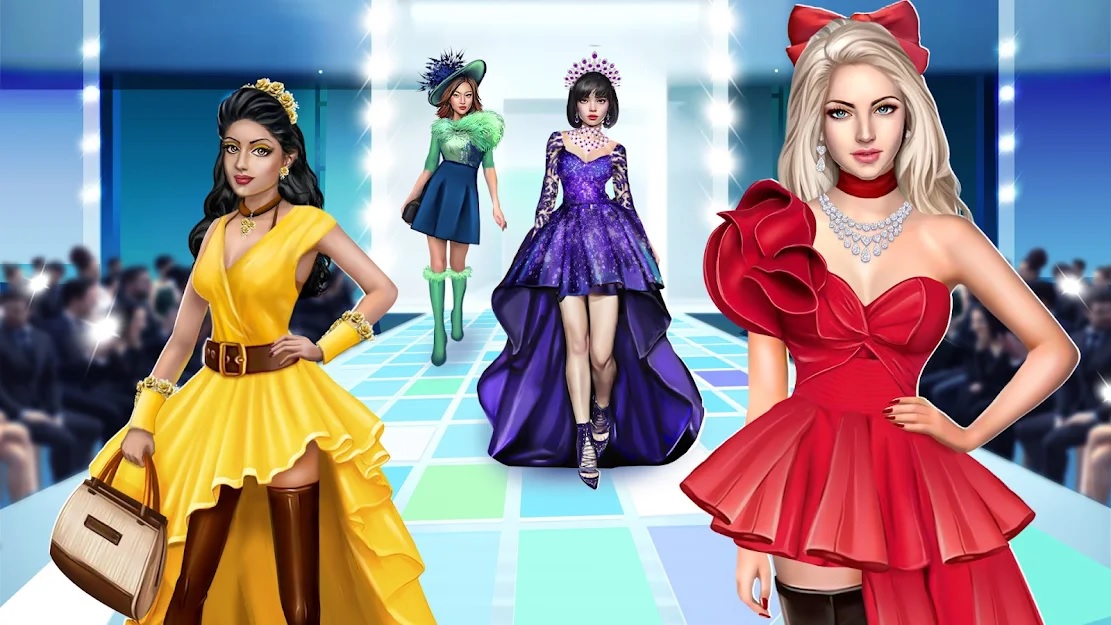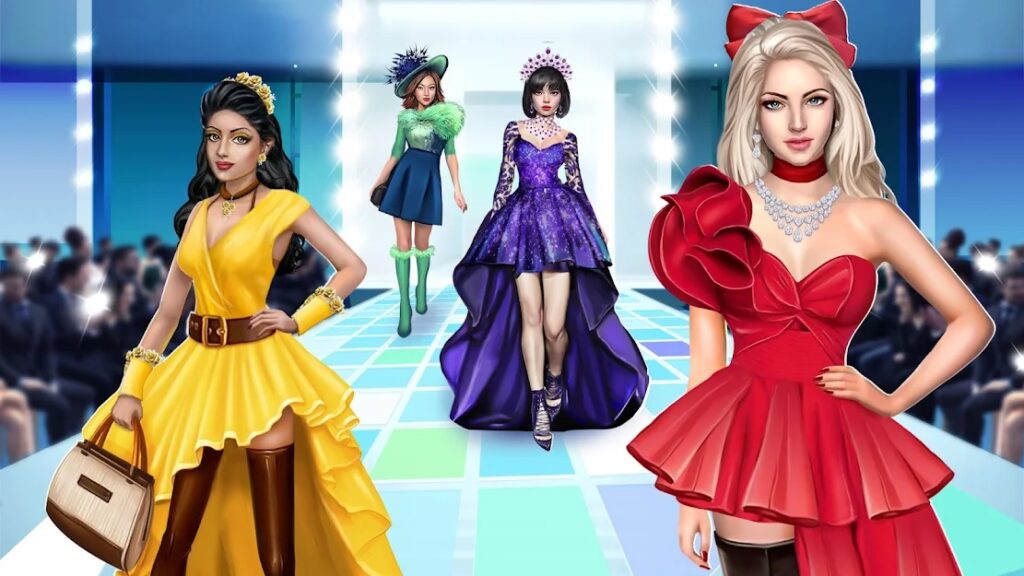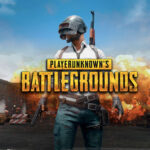Dress up games have captivated audiences of all ages, providing a unique platform for self-expression and creativity. These games, which allow players to mix and match outfits for characters, have evolved significantly from their traditional paper doll beginnings to vibrant digital experiences. With a diverse audience that ranges from young children to fashion enthusiasts, dress up games offer an engaging escape into the world of style and imagination.
Over the years, dress up games have diversified, embracing various themes such as fashion, fantasy, and celebrity culture. Each genre presents unique gameplay mechanics, allowing players to explore their fashion sensibilities and create stunning looks. The rise of digital platforms has also brought forth a plethora of popular titles that showcase innovative features, keeping the genre fresh and exciting for fans worldwide.
Overview of Dress Up Games
Dress up games are a unique genre within the gaming culture, characterized by their focus on personal expression and creativity. Players engage in the customization of characters through various clothing, accessories, and hairstyles, allowing for a playful exploration of identity and aesthetics. The significance of these games lies not only in their entertainment value but also in their ability to foster creativity and self-expression among players of all ages.
The evolution of dress up games has transitioned from traditional paper dolls and physical dress-up kits to sophisticated digital platforms. In the early days, these games were primarily found in magazines and books, featuring cut-out dolls and outfits that could be mixed and matched. With the rise of the internet and advancements in technology, dress up games have expanded into rich, interactive online experiences. Today, they often feature elaborate graphics, diverse character options, and engaging gameplay mechanics that make the experience more immersive and appealing.
Target Audience and Appeal
The target audience for dress up games spans a wide demographic, with a particularly strong appeal among younger players, especially girls. However, this genre has also gained traction among older gamers and diverse groups who appreciate the creativity and personalization aspects. The appeal of dress up games can be attributed to several factors:
- Creative Expression: Players enjoy the ability to express their unique style and personality by customizing characters, creating distinct looks that reflect their tastes.
- Social Interaction: Many dress up games incorporate social elements, allowing players to share their creations, compete in challenges, or collaborate with friends, enhancing the community aspect.
- Inclusivity: Modern dress up games offer a wide range of character features, including different body types, skin colors, and cultural attire, making them accessible and relatable to a broader audience.
- Escapism: These games provide a fun escape from reality, allowing players to immerse themselves in a world of fashion and creativity, which can be especially appealing in stressful times.
“Dress up games serve as a canvas for creativity, enabling players to explore their fashion sense in a vibrant digital landscape.”
Types of Dress Up Games

Dress up games have evolved into a vibrant genre that captivates players with their unique themes and gameplay styles. These games provide a platform for creativity and self-expression, allowing players to explore diverse aesthetics and personas. From whimsical fantasy settings to glamorous celebrity lifestyles, the world of dress up games offers a variety of experiences tailored to different interests and demographics.
Genres of Dress Up Games
Within the realm of dress up games, various genres cater to different tastes and fantasies. Understanding these genres helps players choose the experience that best suits their preferences. Below are some of the prominent genres along with examples that illustrate their unique features.
- Fashion Dress Up Games: These games focus on real-world fashion trends, allowing players to create stylish outfits using a wide array of clothing items, accessories, and hairstyles. Popular titles like “Style Me Girl” provide an extensive wardrobe and often include social features where players can share their looks.
- Fantasy Dress Up Games: Fantasy-themed dress up games transport players to magical realms where they can customize characters like fairies, princesses, and mythical creatures. Games such as “Fairy Dress Up” allow players to mix and match enchanting outfits and accessories in a whimsical setting.
- Celebrity Dress Up Games: These games emulate the glamorous lifestyles of celebrities, offering players the chance to style famous figures or create their own star. Titles like “Hollywood Star Dress Up” feature popular celebrities and provide iconic outfits that reflect their signature styles.
- Historical Dress Up Games: Historical themes allow players to explore fashion from different eras. Games such as “Victorian Dress Up” provide a rich selection of period-appropriate clothing and accessories, immersing players in the culture and style of the time.
- Seasonal Dress Up Games: Seasonal games revolve around themes associated with specific times of the year, such as Halloween or Christmas. In “Halloween Dress Up,” players can choose spooky costumes and accessories, creating festive looks that celebrate the holiday.
Gameplay Mechanics of Dress Up Games
The gameplay mechanics in dress up games are designed to enhance creativity and engagement. These games often feature intuitive interfaces, making it easy for players to navigate through options and customize their characters. Key mechanics include:
- Customization Tools: Players are provided with an array of options to personalize their characters, including clothing items, hairstyles, makeup, and accessories. The ability to mix and match enhances individual expression.
- Interactive Environments: Many dress up games include interactive backgrounds or settings where players can place their characters, enhancing storytelling and immersive experiences.
- Social Features: Some games incorporate social elements, allowing players to share their creations with friends or the wider community, fostering a sense of belonging.
- Challenges and Goals: Certain games introduce challenges or objectives, such as themed competitions or fashion contests, motivating players to create their best outfits.
- Save and Share Options: Players can often save their favorite outfits or characters and share them across social media platforms, further promoting creativity and community engagement.
Benefits of Playing Dress Up Games
Playing dress up games offers a multitude of benefits that extend beyond mere entertainment. These games not only ignite creativity and imagination but also serve as a platform for social interaction and education. As players immerse themselves in the virtual world of fashion, they develop valuable skills and knowledge that can be applied in real-life scenarios.
Creative and Artistic Skills Development, Dress up games
Engaging in dress up games fosters creativity and enhances artistic skills in various ways. Players are often required to make decisions about color combinations, styles, and themes while dressing up characters. This process involves critical thinking and an understanding of aesthetics.
The following aspects highlight the creative benefits of dress up games:
- Exploration of Fashion Trends: Players can experiment with different styles and trends, allowing them to discover their unique fashion sense.
- Color Theory Application: Understanding how colors complement each other is a vital skill developed through these games, as players mix and match outfits.
- Design Skills: Customizing characters and outfits enhances design thinking, encouraging players to think creatively about how different elements come together.
- Storytelling: Players often create narratives around their characters, enhancing their storytelling abilities and imagination.
Social Interaction Aspects
Dress up games often feature multiplayer modes or online communities that encourage social interaction among players. These platforms provide an environment for users to connect, collaborate, and share their creations, leading to a community-driven experience.
The importance of social interactions in dress up games can be summarized through the following points:
- Collaboration: Players can work together to create outfits or styles, promoting teamwork and cooperation.
- Community Building: Online forums and social media groups dedicated to dress up games allow players to share tips, tricks, and inspiration, fostering a sense of belonging.
- Feedback and Support: Players can receive constructive feedback on their designs, helping them improve their skills while building friendships.
- Cultural Exchange: Engaging with a diverse community exposes players to different fashion styles and cultural perspectives, enhancing their understanding of global fashion trends.
Educational Value in Fashion and Design Knowledge
Beyond entertainment, dress up games serve as an educational tool that introduces players to fundamental concepts in fashion and design. Through participation, players gain insights into the fashion industry, which can be beneficial for future endeavors in related fields.
Key educational aspects include:
- Fashion History: Exposure to various styles and eras helps players learn about historical fashion influences and trends.
- Body Types and Styles: Players learn to identify body types and how different clothing styles can enhance or detract from a character’s appearance.
- Textile Knowledge: Understanding different fabrics and materials used in clothing helps players appreciate the complexity of fashion design.
- Fashion Illustration: Many games incorporate elements of design that require players to visualize and plan outfits, promoting skills in fashion illustration.
Final Thoughts: Dress Up Games
In summary, dress up games are more than just a playful pastime; they foster creativity, social interaction, and educational insights into fashion and design. As players immerse themselves in this vibrant world, they not only enhance their artistic skills but also connect with communities that share their passion. Ultimately, dress up games stand as a testament to the enduring allure of fashion and self-expression in the gaming culture.


